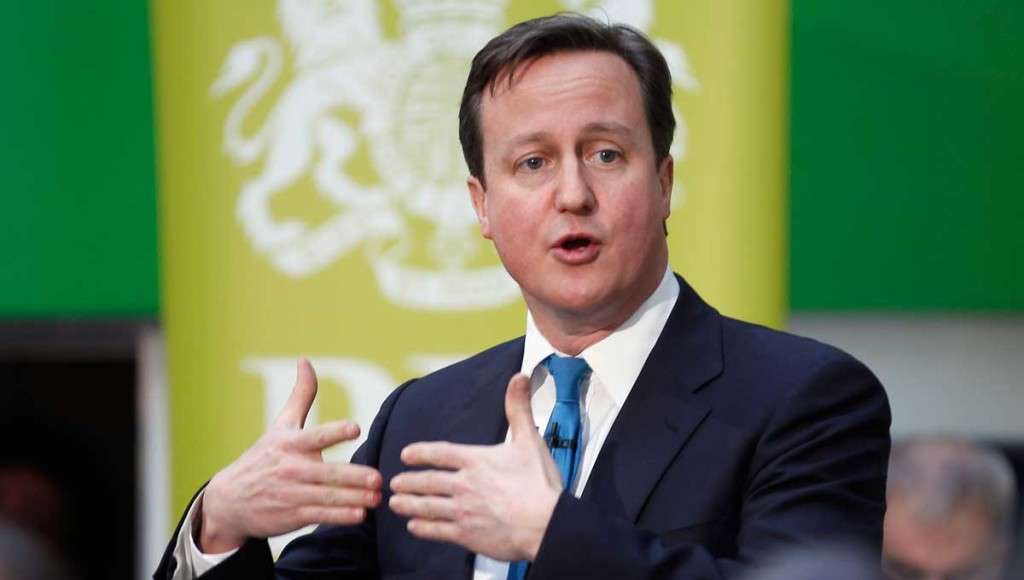Paul SeddonPolitical reporter and
Kate WhannelPolitical reporter
Watch: Shadow chancellor pledges tax rebate for young people
The Conservatives say they would give young people a £5,000 tax rebate in their first job, in a bid to help them buy their first home.
In his speech to the party’s annual conference, shadow chancellor Sir Mel Stride also said the party would abolish business rates for high street shops.
Under the proposals, retail, hospitality and leisure firms in England would be exempted from the tax, up to an annual limit of £110,000 per year.
The party says both policies would be paid for from a savings drive worth £47bn a year from cuts to welfare, the civil service and foreign aid.
In his speech, Sir Mel sought to draw a line under Liz Truss’s disastrous 2022 mini-budget, in a bid to reposition the Tories as the only party that can be trusted to effectively manage the public finances.
He attacked Labour’s record in office, adding they would leave a “mountain of debt for the next generation”.
But he argued Reform UK’s spending plans were “just as bad”, accusing the party of promising “tens of billions in unfunded commitments” at the last election.
He told activists that Nigel Farage’s party were “marching to the left” on economic policy, with “more spending and more debt”.
“We’re the only party that gets it. The only party that will stand up for fiscal responsibility,” he added.
“And that means we have to face some hard truths to which other parties turn a blind eye.”
£5,000 savings pot
Under the Tory housing plans, people would see the first £5,000 of National Insurance they would have paid in their first job redirected into a nominated savings account of their choice.
The proposals, branded the First Job Bonus, would allow couples to save a combined £10,000, in a policy that would cost £2.8bn a year, the party says.
Those benefiting from the scheme, which would be restricted to British nationals, would be able to draw down the pot after five years.
Sir Mel said it would allow young people to put the money towards a house deposit, or “savings for later life”. The party later confirmed it would not seek to restrict how the money can be spent after withdrawal.
The proposal to abolish business rates would effectively expand an existing relief up to the £110,000 cap from the current 40% to 100%. The party estimates it would cost the Treasury around £4bn a year by 2029.
The Conservatives say their cuts would shrink government spending by £47bn a year from 2029/30 onwards, by saving:
£23bn through cuts to the welfare bill, including by reducing payments to those with “lower level mental health issues”£8bn by reducing the Civil Service by around 132,000 to bring it back to 2016 staffing levels – a pledge made under Boris Johnson£6.9bn by further reducing the overseas aid budget to 0.1% of national income, from 0.5% currently£3.5bn by ending the use of hotels to home asylum seekers£4bn by ensuring benefits and social housing are reserved for UK nationals£1.6bn by scrapping environmental policies, including cutting subsidies for heat pumps and electric vehicles.The party says its business rates and house deposit policies, combined with existing pledges such as reversing VAT on private school fees, would use up around £9bn of the £47bn savings it is planning to make.
Speaking to BBC Radio 4, Sir Mel cited depression, anxiety, and attention deficit hyperactivity disorder (ADHD) as conditions where the party would seek to reduce working-age benefit payments.
The Tories also want to review exemptions for the household benefit cap, limiting the VAT subsidy for Motability – which allows claimants to lease vehicles – and changing obligations for job-seekers.
Last year, the Office for Budget Responsibility forecast that total spending on health and disability benefits would rise from £64.7bn in 2023-24 to £100.7bn in 2029-30.
Earlier this year, Prime Minister Sir Keir Starmer said he would cut the UK’s aid budget from 0.5% of gross national income to 0.3% in 2027 in order to pay for an increase in defence spending.
The Institute for Economic Affairs (IEA) think tank welcomed some of the proposals but warned the Conservatives not to ignore “elephant in the room” of age-related spending such as pensions.
Tom Clougherty, IEA executive director, said: “Ultimately, no political party is going to be able to balance the books only by cutting things their supporters don’t like.
“Without that, other cuts are likely to amount to running to stand still.”
The Conservatives have not committed to changing the triple lock, which guarantees that the state pension will go up each year in line with either inflation, wage increases or 2.5% – whichever is the highest.
Romilly Greenhill, chief executive of Bond, the network of international development organisations, said the proposed aid budget cuts were “reckless, short-sighted, and morally indefensible”.




